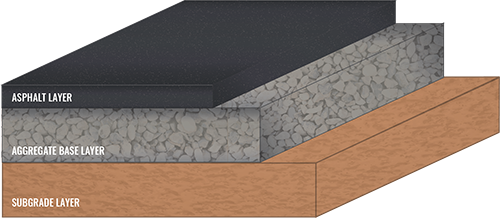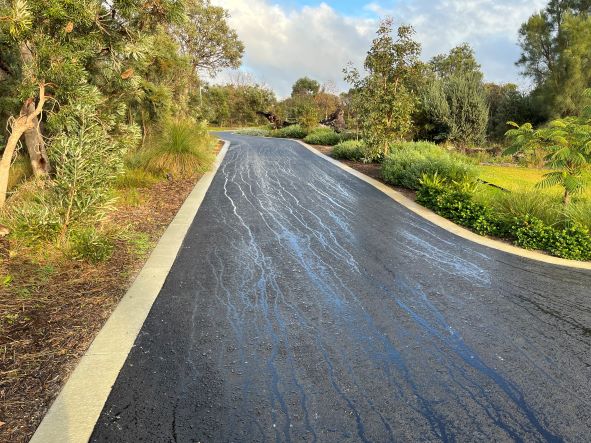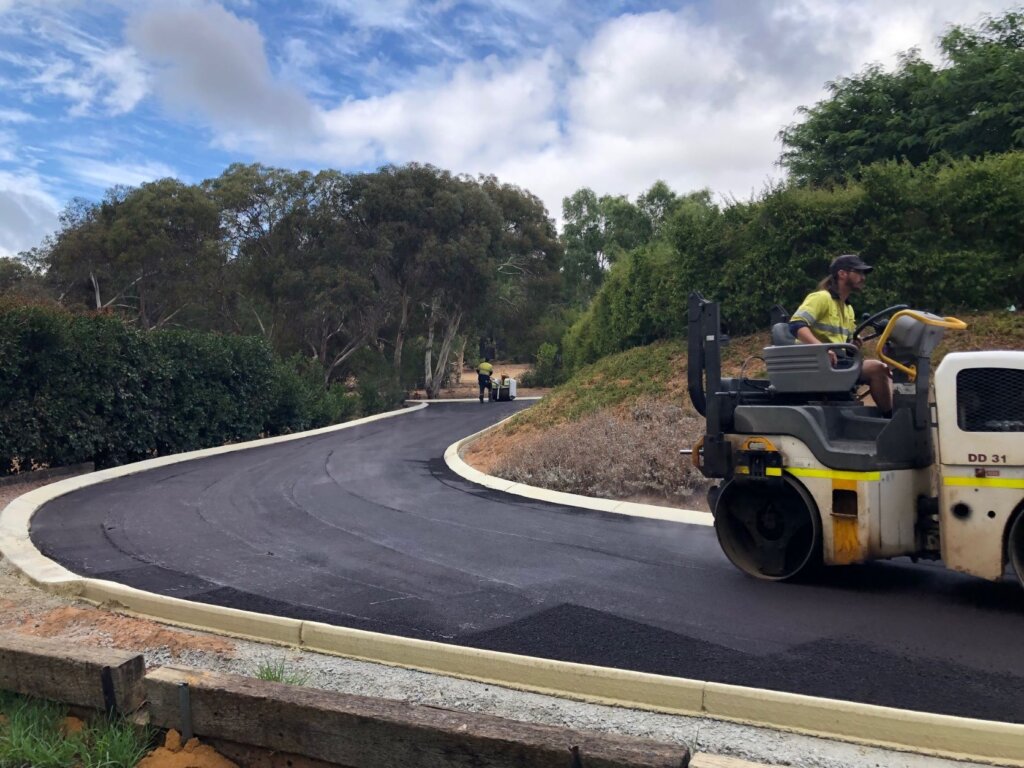Say you need a fresh asphalt driveway solution at your home or workplace, do you know how thick it should be?
There’s much to consider before you take the cheapest option and lay a thin layer of asphalt thinking it will suffice. In this article, we explore the factors that determine the required thickness of an asphalt driveway solution.
Determining how to lay the driveway solution
Before we lay a new asphalt driveway, it’s important to consider the stability of the site foundations. No matter the asphalt thickness, if it doesn’t have a reliable base, the driveway will deteriorate faster. A quality base needs to be compact and stable, and efficiently drain water.
An expert asphalt contractor like NK Asphalt will advise the best direction to take regarding the base layer. The options available are:
- Older Existing Driveways – Laying the asphalt over the existing bitumen or asphalt driveway if it’s in good condition and the finished level isn’t too high.
- On Unsealed Driveways – Laying the asphalt on an existing layer of roadbase, limestone, or gravel that has been added to and regraded.
- New Driveways – Laying the asphalt over a new aggregate base. This process requires removing any existing driveway before laying 100-200mm of compacted aggregate as the foundation, followed by the asphalt surface.

Inside look at the various levels required to ensure a sturdy asphalt surface.
Determining the primary driveway use
Depending on the primary use of the driveway, the asphalt thickness may vary. For traditional residential and commercial driveways, the thickness of the asphalt will be in a similar range, though it also depends on the base foundation determined above.
If the driveway solution needs to withstand the weight of heavy industrial vehicles in excess of 10 tonnes, the base and asphalt thickness needs to be increased.
Optimal thickness of the driveway surface
Typical asphalt driveway surfacing will range between 30mm and 40mm in thickness. The range depends on the primary vehicles using the surface and the basecourse material and thickness used underneath.
If heavy loads are expected, the applied asphalt thickness may be closer to 60mm. See here for Our Asphalt Driveway Tips for Heavy Trucks.
How thick should other asphalt surfaces be?
You may be wondering how these measurements correspond to other surface applications. The asphalt thickness of a car park depends on the weight and number of vehicles. If traffic consists of just regular cars, the thickness will be similar to an asphalt driveway solution. Again, if heavy loads are expected, the asphalt thickness may exceed 50mm.
When it comes to commercial asphalt hardstands, the surface needs to be noticeably thicker than a carpark or driveway solution. This means the asphalt thickness for hardstands will all be 40mm or more and may reach as high as 100mm. This depends on the loading weight and the budget available for the project.
Should asphalt thickness help with drainage?
When laying an asphalt surface, effectively draining water is crucial. The drainage process is more reliant on the basecourse and the direction it slopes than the asphalt thickness. If the subgrade is graded to achieve the optimal slope for water run-off, asphalt can be laid at a consistent thickness. A minimum of 1 in 100 (1%) fall or more is desirable for achieving optimal drainage run-off.
With new asphalt, the surface tension makes the water bead and run-in rivulets to the lowest drainage point. See the photo below of an asphalt surface distributing water evenly with an excellent layout and design. As the surface ages and oxidises, the beading decreases to a more even overall run-off of water, but still relies on adequate falls design.

Driveway project when it rained after being laid by NK Asphalt the previous day.
NK Asphalt: Your asphalt driveway solution
NK Asphalt are experts in their field which includes asphalt driveways, car parks, commercial properties, and hardstands. If you’re planning a new asphalt surface and unsure of the thickness required, get in touch with us for advice.
We also provide a free measure and quote to supply the perfect driveway solution for your property. Contact us if your asphalt project is between 150m2 and 50,000m2 in Perth or the nearby rural areas.
share


